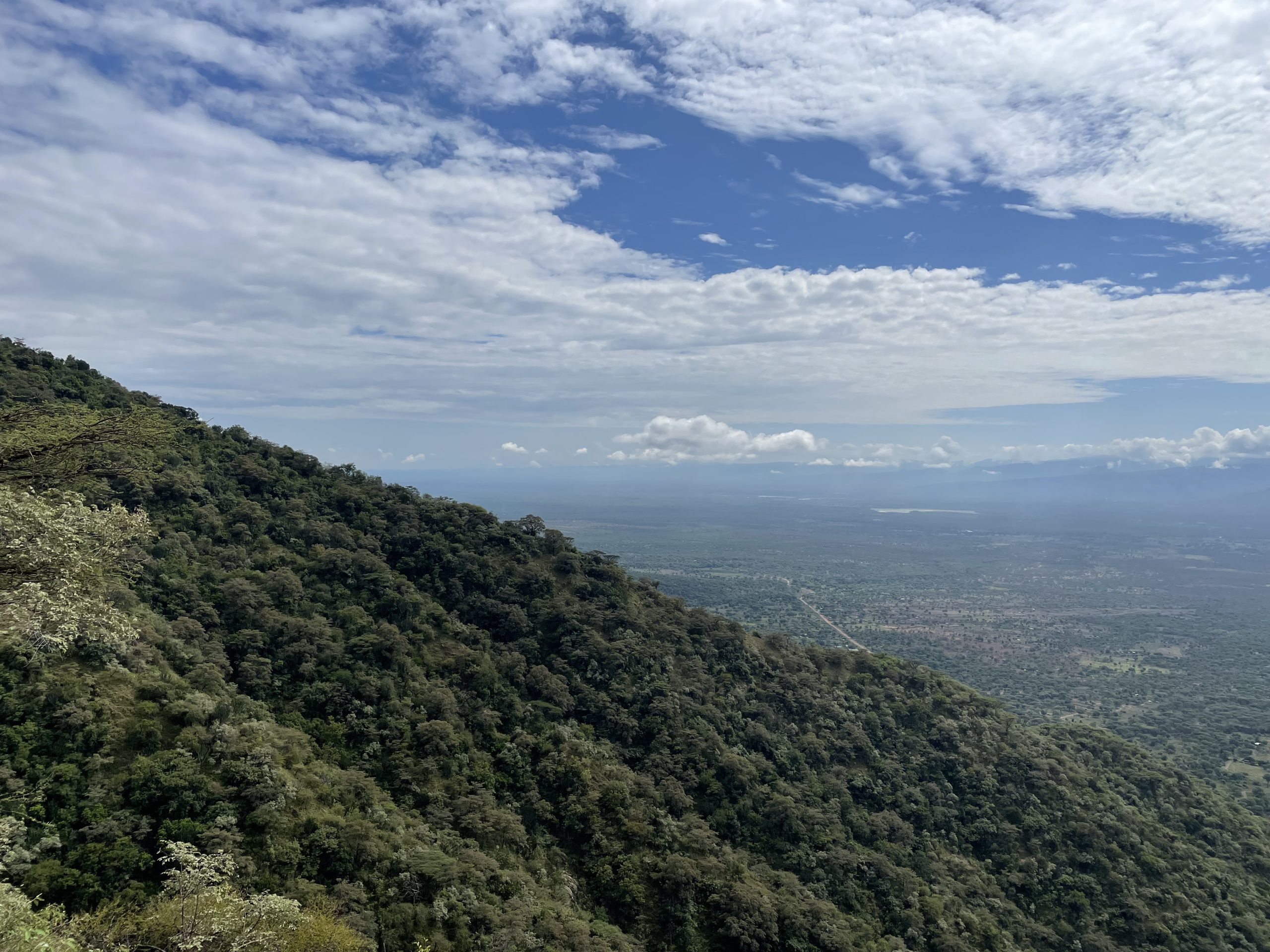Over the last fifteen years, we have been privileged to introduce you to some of the farmers whose lives you have impacted with the Nuru Collective. Extreme poverty–though it has impacted their ability to make choices and their access to resources–is not the summation of these farmers’ lives. In fact, Nuru farmers are actively writing extreme poverty out of their families’ stories, changing the narrative from a story of poverty to a story of hope for generations to come.
With persistence, they have been learning new business skills, adapting farming methods to climate change, and working alongside other farmers to transform local food systems through farmer cooperatives. They have increased their crop yields and incomes, and they have done all this while raising children, caring for aging parents, and being active community members. It is hard to put into words the magnitude of this transition. Imagine the accomplishment of being the last generation of your family to know hunger.
We are eager to pick up these stories where they left off many years ago–
Milka: A Leader and Champion for Education
Twelve years ago, we introduced you to Milka. Prior to joining a Nuru farmer cooperative, Milka and her husband were harvesting three bags of corn per acre. As she reflects back, she shares, “Nuru had made a promise to provide farm inputs through loans. Consequently, I had hoped that by joining Nuru, I could enhance my farming practices and achieve better production compared to previous years. For my family, poverty had led to hunger, but I believed that once I became a part of Nuru, we would have access to food and be able to combat poverty.”
More than a decade ago, as a recently-appointed cooperative leader at Isebania Farmers’ Cooperative in Kenya, Milka was already actively breaking down barriers and overcoming the odds, noting “I am happy to be a woman leader because most leaders are men. When they chose me, I was very happy because they saw how hardworking I was.” She was proud of her family’s achievements, as they were managing medical expenses, her children were in school, and behaviors like hand-washing and utilizing mosquito nets had helped their family stay well and avoid sickness.
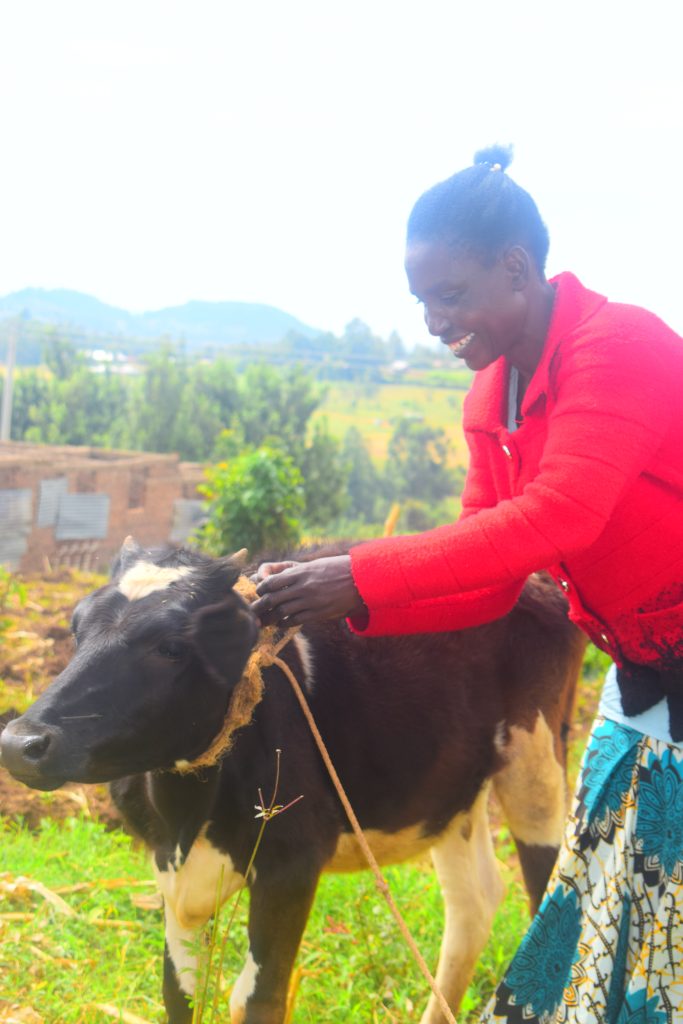
Milka with her cow, 2023
Achievements and Hopes for the Future
Today, Milka now regularly harvests 18 bags per acre in comparison to the three bags they were getting before. Milka says that “with the additional income, [she was] able to allocate funds towards various essential expenses, such as paying for school fees, purchasing clothes, and fulfilling other household needs.”
She goes on to say, “One of my biggest achievements is being able to provide education for my children.” The children who were in primary school when Milka joined Nuru have grown. One of her children is attending a university, while another is a teacher educating the next generation. Her goal is to put her younger children, now in secondary school, through college as well. She shares, “My goals for my children are that I will be able to afford their school fees to support their educational pursuits. I hope they will have the opportunity to pursue excellent courses that will enhance their studies.”
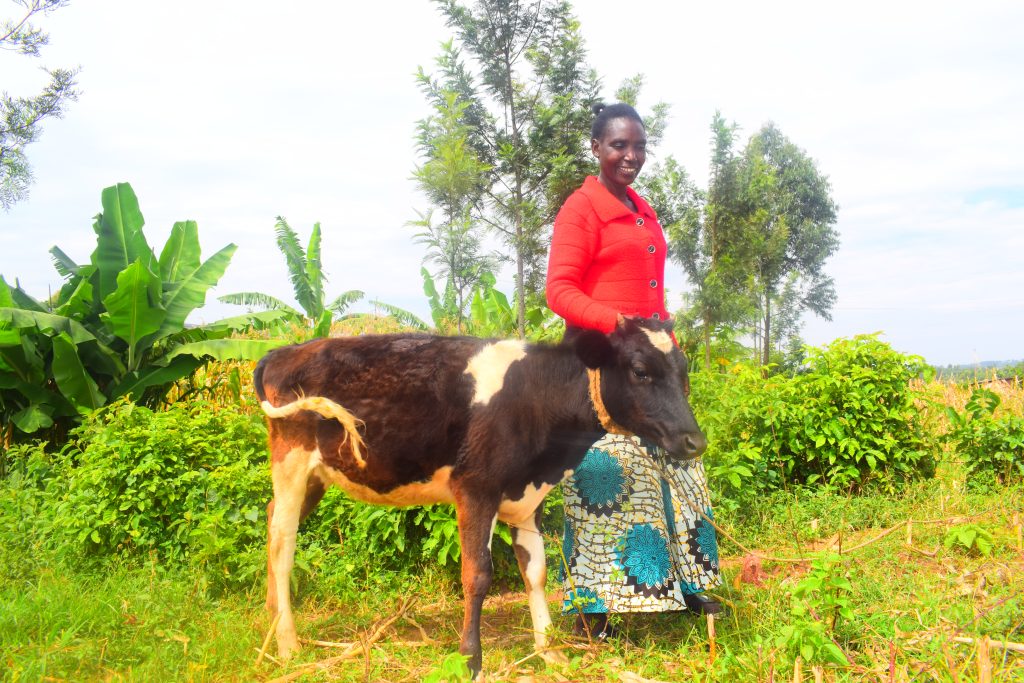
Milka with her cow, 2023
In addition to having served as a cooperative leader, Milka is now a dairy farmer and works at a posho mill business (an establishment that creates flour from local grains). Her dreams now extend beyond her own family. She says that her “hope for the community is that [they] can persist in practicing the farming techniques taught by Nuru.” She says that these practices “can combat poverty and ensure that our children receive the education they deserve.” Milka continues to demonstrate her leadership skills, with a vision for her cooperative focused on additional milk aggregation, a locally-owned feed mill to make food for livestock, and flour processing capabilities that could enable farmers to help feed the community and sell more to neighboring counties. She believes in her cooperative, stating that members can work together to “foster collective growth and drive positive transformation within [their] community.”
Josephat: A Father and Entrepreneur
Five years ago, we introduced you to Josephat, another farmer and community leader in Kenya.
In 2009, when Josephat joined Nuru, there were food shortages in the community, a lack of access to education, and farmers desperately needed to learn how to adapt their farming practices to the changing climate. Josephat’s family was facing severe food insecurity, as he was only able to grow about half the amount of food needed to feed his family.
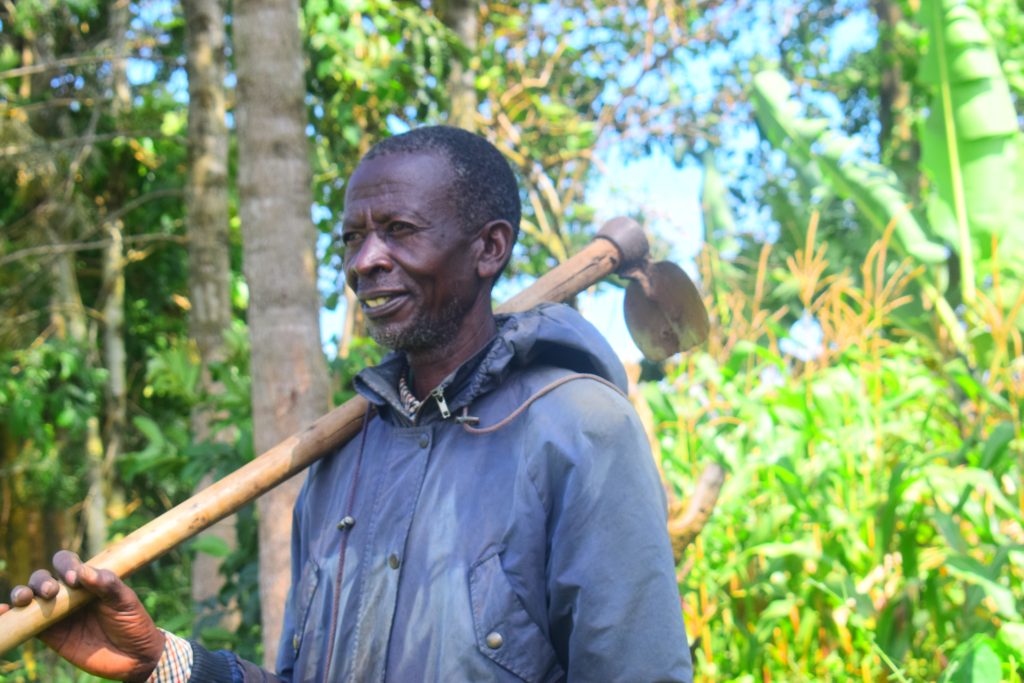
Josephat, 2023
When we first heard Josephat’s story, he was already proud to see how his role in the community was directly contributing to the end of hunger for both himself and others, noting that he was training other farmers “so that their hunger can disappear.” We saw his passion for raising up the next generation of leaders, too. He shared, “I’ve started teaching my children to be servant leaders because bosses are not helping the community, but servant leaders are people that can help the community.”
Today, after consecutive years of more than tripling his harvest, Josephat says, “My aspirations for enhancing my agricultural practices have been achieved. I managed to provide education for my children, and my income has improved.” Josephat expands on the changes he has witnessed over the years, “Hunger is no longer a concern, as we no longer need to purchase food. Moreover, I generate income from the sale of milk and surplus maize [corn]. The health of my children has also improved, as they can consume the milk produced by our dairy cow. Furthermore, I have upgraded from a thatched house to one with a sturdy roof.”
Goals for the Family and the Community
Similarly to Milka, Josephat is a dedicated parent with dreams for his children’s future, as he says his “greatest accomplishment is ensuring [his] children receive an education.” He is proud to share, “I have one child enrolled in the radiography and medical imaging sciences courses at Kenya Medical Training College. Additionally, I have two children who have completed secondary school and are awaiting college admission.” Josephat’s goal is for all his children to attend college, “enabling them to lead better lives than [his].”
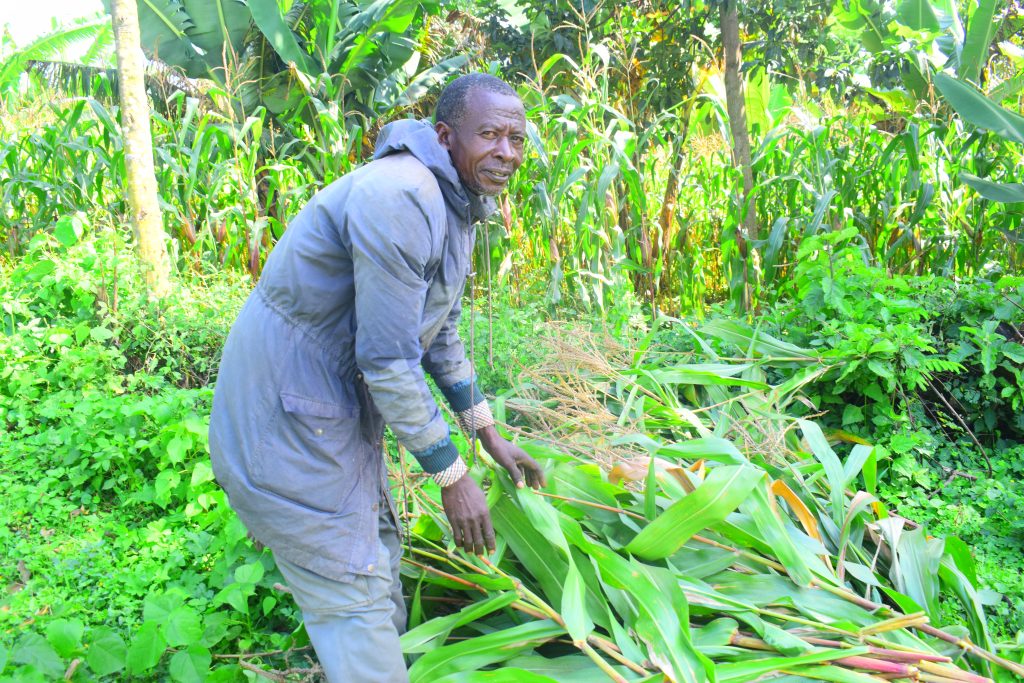
Josephat, 2023
Josephat continues to pursue growth in his business as well, with plans underway to expand his dairy business and further diversify his crop production. As he shares about his dreams for the future, he reflects on how far he has already come, adding, “there has been a significant transformation in my life. […] I have acquired training and skills, which have empowered me to become self-reliant. Thanks to the support of the Nuru-backed cooperative, I obtained a heifer and received valuable training. As a result, the heifer successfully gave birth to a calf, and I have been generating income through the sale of milk facilitated by the Nuru Social Enterprises.”
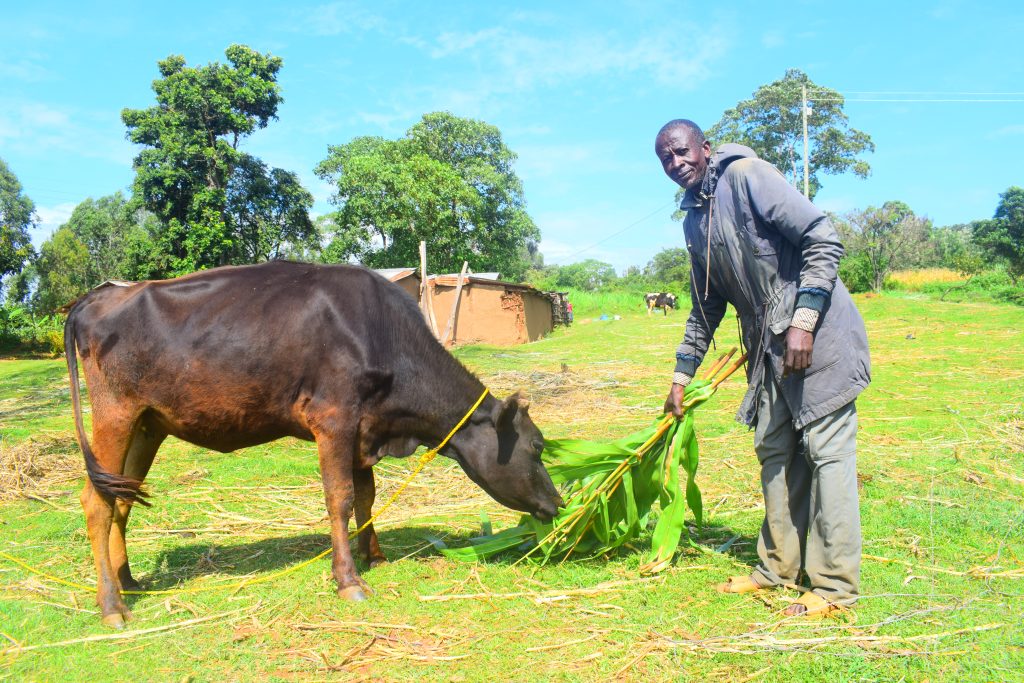
Josephat with one of his cows, 2023
The impact of Nuru Kenya has created a ripple effect, according to Josephat. He shares, “the community’s demeanor has also experienced a shift. Even those who were not directly affiliated with Nuru have embraced improved farming practices.” Josephat’s hope for his community is that “all farmers in the community can overcome extreme poverty and that individuals will be able to construct improved houses.”
Nuru Kenya Continues Supporting Farmers
The results are nothing short of transformative. Going from struggling to feed a family to sending those same children to college is an amazing accomplishment. Long-term transformation that breaks poverty cycles and impacts future generations takes daily perseverance over the course of many years. Milka and Josephat’s stories are a testament of their persistence in the face of challenges.
These stories are also a reflection of the Nuru Kenya local leaders who have adapted their efforts over the years to keep serving farmers better. When harvests were meager, finances were difficult to stretch, and when it seemed like transformation wouldn’t be possible, these farmers were supported by local leaders who stood with them, believing that a pathway out of extreme poverty was achievable.
Thank you for your partnership in fighting extreme poverty and investing in local leaders. To learn more about how Nuru Kenya is supporting farmers like Milka and Josephat, click here.


